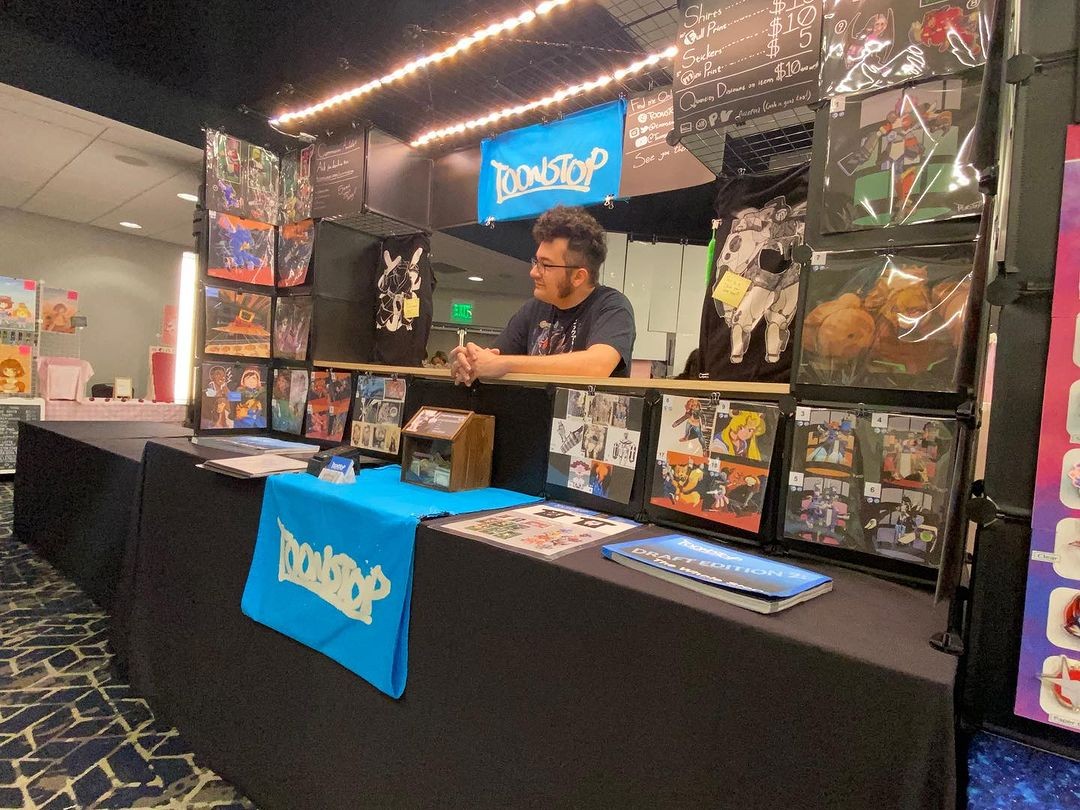We caught up with the brilliant and insightful John Valles a few weeks ago and have shared our conversation below.
John, looking forward to hearing all of your stories today. We’d love to hear the backstory behind a risk you’ve taken – whether big or small, walk us through what it was like and how it ultimately turned out.
Creative work in the modern context is characterized almost entirely by risk.
• You risk criticism.
• You risk rejection.
• You risk mistakes.
• You risk disappointment.
You don’t have to risk everything, though. If you can afford to be creative, most of the risks you can take aren’t that high-stakes.
You don’t have to take out two mortgages to develop a game, for example (though it’s a viable strategy if your minimum viable product is solid, like with Cuphead).
Risk, for you, can be as simple as applying to run a panel at your favorite convention, or investing some money into products you feel really good about.
It’s not just taking one singular, high-stakes risk. It’s being willing to make progressive, cumulative, calculated gambles that place you further ahead than you were before.
The first risk I took was a little over 5 years ago when I submitted an article to Cubebrush, an art resources website, about motivation. The topic resonated with the audience of the website, and to this day, the article is still a top post on the site’s blog.
So then I decided to turn that blog post into a powerpoint deck and present it at a panel at a small local convention. And that was a hit too.
So, either that year or the next, I applied to do more panels at another local convention, and an artist table.
And I kept going to that same convention, with more panels, different panels, and additions to my artist booth over time.
Each step does cost money, and it costs planning, and it costs a gamble that isn’t guaranteed to pay off, but every time you risk losing, you also risk winning.
• Winning skills.
• Winning wisdom.
• Winning experience.
• Winning connections.
As you take each risk, you understand the direction you want to take your career, you understand what does and what doesn’t work, and over time you might just understand yourself into doing everything you’ve ever wanted to do, even if it took a little effort.
I haven’t done everything I want to do yet as an artist, but I’m excited for what’s ahead of me.

John, before we move on to more of these sorts of questions, can you take some time to bring our readers up to speed on you and what you do?
I’m a character designer. I got into my discipline on instinct at first by inventing characters and telling stories, and later by intention and trying to figure out how to reach into what’s important to me, how human beings bring out their own stories and history through what they wear, how they talk, and how they relate to their world.
I primarily offer illustration services, but as a bonus I also provide teaching services, and sell prints, stickers, and t-shirts.
When people come to me for service, they want to connect their story or their ideas to the audience through a character, so I either learn about the character they want portrayed and develop visual anchors to set out story elements for the audience to connect into the story of the character and the picture.
What sets me apart, I think, is that there’s a certain part of my design sense that’s sits a few years in the past. In particular I like what manga and anime was doing in the mid-late 90s when it was stylized just a little bit but still anchored in really good drawing of the human figure. I like an expressive face, but I also like the human form.
I’m incredibly proud of my process and how I’ve developed a workflow that lets me solve visual problems methodically to deliver what I believe are great pictures.
More than anything, I want people to be in touch with what it is to be human and remember how important it is for their own lives and creative work. Who we are spills out in our creative work, and it’s important to be thoughtful about who you are, what’s important to you, and to be full as you can be from robust relationships and a good human experience.

What’s a lesson you had to unlearn and what’s the backstory?
Remember the first Spiderverse movie where Kingpin says “It’s not always about the money?”
It’s hard to divorce the ideas of creative success and money in the society we live in, but whether you make a full living from creative work or not, in my experience it’s necessary to divorce financial gain from the equation of creative fulfilment unless or until you’re fully in your art for the love of the craft or the love of something you get out of the craft.
It’s hard to get money out of creative work if you don’t have a really deep and thorough joy and vision, so you might as well resolve that part first so if you do want to make it your financial foundation, you don’t burn yourself out into hating it too quickly.
The backstory of this is inside the past half-decade where I tried quitting work for a few months and that didn’t work out the way it needed to because I didn’t understand:
• What exactly I wanted to do
• How exactly to do what I wanted
• Who I could best serve with my work
• How long I still had before I figured out these questions

What do you find most rewarding about being a creative?
I’ve noticed that I get what one might call The Fizz™ from two specific things:
• Completing a drawing, whatever the medium happens to be.
Bringing an idea from concept to finish is simply satisfying, and advancing through a drawing provides plenty of incidental opportunities to get a hit of dopamine off of figuring out how to draw complex things and make a picture feel full and finished.
• Helping someone else get ahead, whether as an artist or a professional.
Everyone has at least a little knowledge that another human being will benefit from. There might be a more popular and more accomplished artist than you, but you might speak in a language that is better suited for certain people to learn from. Don’t be scared to teach something you’re passionate about, or lend a hand to someone you know how to help.

Contact Info:
- Website: https://toonstop.com
- Instagram: toonstop
- Youtube: ToonstopTV


